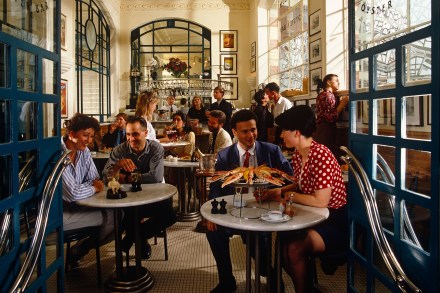William Sitwell’s history of eating out reminds us painfully of what we’re missing
In the concluding chapter of this book the Daily Telegraph’s restaurant critic and recovering vegan-baiter William Sitwell muses on the collapse of Jamie Oliver’s empire last year: ‘His endeavour, passion and hard work wasn’t enough… it was part of a bursting bubble.’ Since then more mid-range chains have announced their imminent demise. Teetering before lockdown, it’s not just the prospect of months of closure and general uncertainty that’s pushing them over the brink but decades of oversupply and a reliance on a cynical model of successful restaurants selling on and out. This book feels timely: a reminder of what we currently can’t have, and how the sector came to be.


